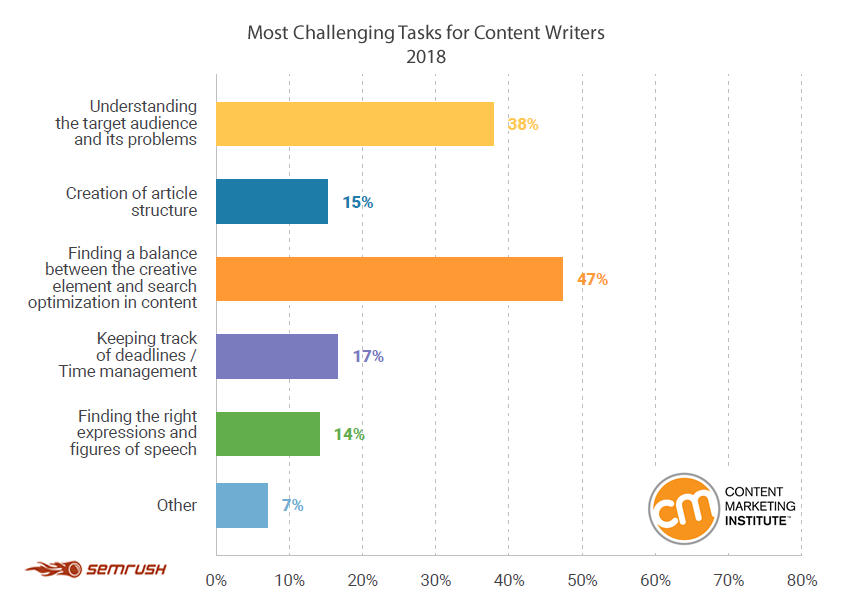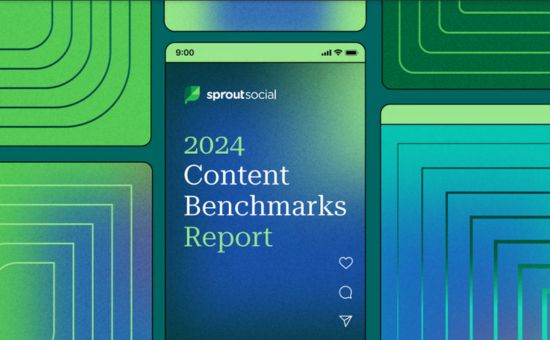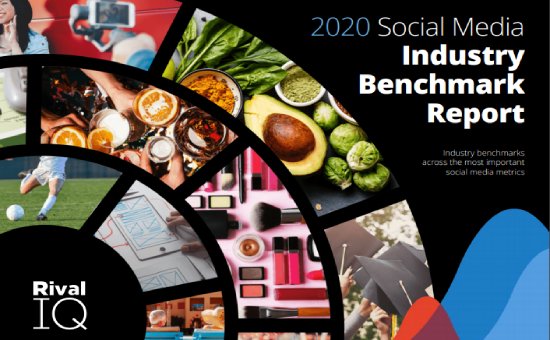The Invisible Key to Content Success, 2018 | SEMrush & CMI
Content Marketing | Global
Everything in today’s business world begins with a content strategy which means the development, planning, creation, delivery and management of content. The process of strategic content includes the main four stages (planning & ideation, creation & optimization, distribution, and performance tracking & audit).

The Process of Strategic Content
Find out the main insights from over 1,880 content practitioner personas across each of these stages:
1. Planning & Ideation
- 37% of the content strategists, surveyed, said that planning was the most time-consuming part of their effort across the entire process.
- Defining the ROI of a content campaign is the second highest time-consuming task with a rate of 25%, followed by deciding what to write about (22%).
- Developing the content pieces that resonate with target audiences” is the topmost challenging task by 33% of content strategists.
2. Creation & Optimization
- In the stage, finding a balance between the creative element and search optimization in content is the topmost challenge for content writers with a rate of 47%, followed by understanding the target audience and its problems (38%).
- In terms of the most frequent collaborations, almost half of the editors defined content writers and designers as persons they collaborate with the most often.
3. Distribution
- The vast majority of PR/marketing managers (74%) find resources (media/blogs) for publishing their content by monitor what media/blogs are writing about their industry and make a list of the most relevant.
- 45% of them evaluate the authority of an external resource through their brand reputation and monthly traffic.
4. Performance Tracking & Audit
- Traffic is the number one success metric to evaluate the content with a rate of 49.1%.
- This is followed far by the number of shares/likes across social media platforms (31.2%) and “position of content in search engines” (24.9%).

A Graph Shows the Most Challenging Tasks for Content Writers in 2017
Methodology:
Data were driven from a total of 1,884 qualified content practitioners around the world. The study was conducted in the Fall of 2017.
To download the full report, kindly Click Here






